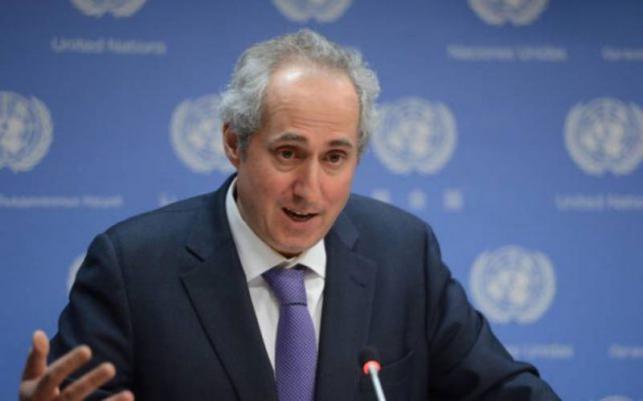United Nations secretary general's office has expressed its hope that “a climate could be created where free and fair elections could take place” in Bangladesh.
Talking to reporters, Stéphane Dujarric, a UNSG spokesperson, on Saturday said, “We've expressed our concern… This is our principal position.”
"...like in any country, this is our principal position that a climate could be created where free and fair elections could take place," spokesman for the secretary-general Stephane Dujarric told reporters in a regular briefing at the UN headquarters on Friday.
He said these when asked whether the UNSG had taken any action to release BNP Chairperson Khaleda Zia from jail.
Khaleda was convicted in the Zia Orphanage Trust graft case by a special court in Dhaka on February 8. She was sentenced to five years' in prison.
The BNP has been demonstrating for her release.
On Wednesday, a European Parliament delegation hoped that the political environment in Bangladesh will become 'less confrontational and hostile' in the coming months with an inclusive election in place.
The delegation urged the Bangladesh authorities to facilitate the necessary conditions for an inclusive, free and fair general election.
"We hope all the parties will actually be willing to stand for election to make sure that people of Bangladesh have a real choice at the ballot-box," Lambert, the chair of the European Parliament delegation to South Asia, told a press conference at the EU office in Dhaka before wrapping up their Bangladesh visit.
Lambert said this is something of real importance for the people of Bangladesh who deserve that choice.
She said it is important for BNP to "concentrate" on the upcoming elections as a political party.
"We know there have been challenges so far in terms of organising in terms of actually being able to conduct the campaign...so this is something we raised with the election commission."
Asked about Rohingya repatriation to Myanmar, the UN chief's spokesperson said, “Any return needs to be voluntary and should not be forced.
“They should not go back to camps. They need to go back to their homes, the homes that they were forced to leave. So, there are all sorts of conditions that the High Commissioner for Refugees feel have not been met,” he was quoted in the detailed text of a press briefing published on the UN website yesterday.
With the process of Rohingya repatriation caught in a limbo, Bangladesh handed Myanmar a list of 8,032 refugees from 1,673 families, who are likely to be the first batch to return to their homeland.
Nearly 700,000 Rohingyas have crossed over into Bangladesh since a military offensive began in response to an insurgent attack on August 25 last year. More than 300,000 others, who crossed over from Myanmar in the previous years, are also staying in Bangladesh.
